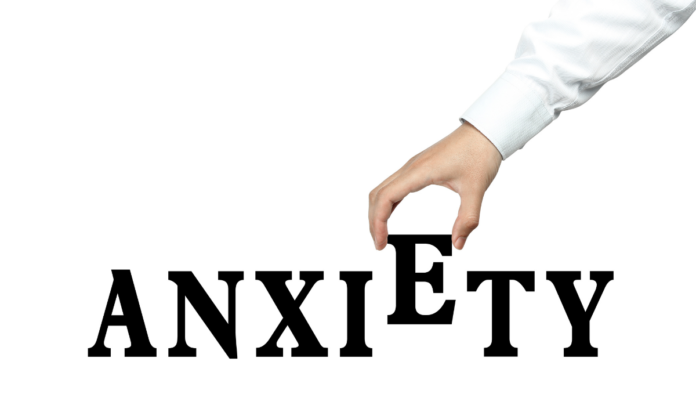Anxiety is a natural response to stress, but when it becomes overwhelming or prolonged, it can severely impact your quality of life. Identifying the early signs of anxiety in yourself is crucial for managing and mitigating its effects before they escalate. This article explores various manifestations and strategies for recognizing and addressing anxiety in its initial stages.
Understanding Anxiety
Anxiety is more than just feeling stressed or worried. It involves persistent and excessive fear or apprehension about everyday situations. It can manifest physically, psychologically, and behaviorally, affecting how you think, feel, and act.
Physical Signs
- Muscle Tension: One of the earliest physical signs of anxiety is muscle tension. You may notice tightness in your shoulders, neck, or jaw, even without a clear physical cause.
- Fatigue: Feeling unusually tired or fatigued, despite adequate rest, can be a sign of underlying anxiety. Anxiety can disrupt sleep patterns, leading to insomnia or restless sleep.
- Gastrointestinal Issues: Anxiety often affects the digestive system, causing symptoms like stomach aches, nausea, diarrhea, or constipation.
- Rapid Heartbeat: A racing heart or palpitations are common physical symptoms of anxiety, especially during stressful situations or panic attacks.
- Sweating: Excessive sweating, even when it’s not hot or you’re not physically active, can be another physical indicator of anxiety.
Psychological Signs
- Excessive Worrying: Constant worrying about various aspects of life, including work, relationships, health, or finances, is a hallmark psychological sign of anxiety.
- Irrational Fears: Developing irrational fears or phobias that disrupt daily activities or social interactions may indicate underlying anxiety issues.
- Difficulty Concentrating: Anxiety can make it challenging to concentrate or focus on tasks, leading to decreased productivity and increased frustration.
- Feeling On Edge: Always feeling on edge or restless, as if something bad is about to happen, is a psychological symptom commonly associated with anxiety.
- Negative Thinking: Persistent negative thoughts, self-doubt, or expecting the worst outcome in every situation are psychological patterns often observed in individuals experiencing anxiety.
Behavioral Signs
- Avoidance: Avoiding situations or activities that trigger anxiety, such as social gatherings or public speaking, is a behavioral sign of anxiety.
- Procrastination: Chronic procrastination or putting off tasks due to fear of failure or perfectionism can stem from anxiety.
- Increased Substance Use: Using alcohol, drugs, or other substances as a way to cope with anxiety symptoms temporarily is a behavioral red flag.
- Isolation: Withdrawing from social interactions or spending excessive time alone may indicate underlying anxiety issues.
- Physical Agitation: Restlessness, pacing, or fidgeting are behavioral manifestations of inner turmoil and anxiety.
Recognizing Early Signs
Recognizing early signs of anxiety requires self-awareness and attentiveness to your thoughts, feelings, and behaviors. It’s essential to differentiate between normal stress reactions and persistent anxiety symptoms that interfere with daily life.
- Self-Monitoring: Keep a journal or use a mood-tracking app to monitor your thoughts, emotions, and physical sensations regularly. Look for patterns and triggers that precede anxiety episodes.
- Mindfulness: Practice mindfulness techniques such as deep breathing, meditation, or yoga to increase awareness of your body and mind. Mindfulness can help you recognize anxiety symptoms as they arise.
- Seek Feedback: Talk to trusted friends, family members, or a mental health professional about your concerns. Sometimes, others can notice changes in your behavior or mood that you might overlook.
- Educate Yourself: Learn about anxiety disorders and their symptoms. Understanding the nuances of anxiety can help you identify when your responses are disproportionate to the situation.
- Professional Help: If you suspect you have anxiety but are unsure or unable to manage it effectively on your own, seek professional help. A therapist or counselor can provide a diagnosis and develop a treatment plan tailored to your needs.
Coping Strategies
Managing anxiety involves a combination of self-care practices and professional interventions:
- Healthy Lifestyle: Maintain a balanced diet, exercise regularly, get adequate sleep, and avoid excessive caffeine and alcohol, which can exacerbate anxiety symptoms.
- Stress Management: Practice stress-reduction techniques such as progressive muscle relaxation, visualization, or engaging in hobbies that bring you joy.
- Cognitive Behavioral Therapy (CBT): CBT is a highly effective therapeutic approach for anxiety disorders. It helps you identify and change negative thought patterns and behaviors contributing to anxiety.
- Medication: In some cases, medications such as antidepressants or anti-anxiety medications may be prescribed to alleviate severe anxiety symptoms. Always consult a healthcare professional before starting any medication.
- Support Network: Build a strong support network of friends, family, or support groups who can offer encouragement, understanding, and practical assistance during difficult times.
Conclusion
Recognizing early signs of anxiety in yourself empowers you to take proactive steps toward managing your mental health. By understanding the physical, psychological, and behavioral manifestations of anxiety, you can intervene early and seek appropriate support when needed. Remember, seeking help is a sign of strength, and you deserve to live a life free from the grip of anxiety.





